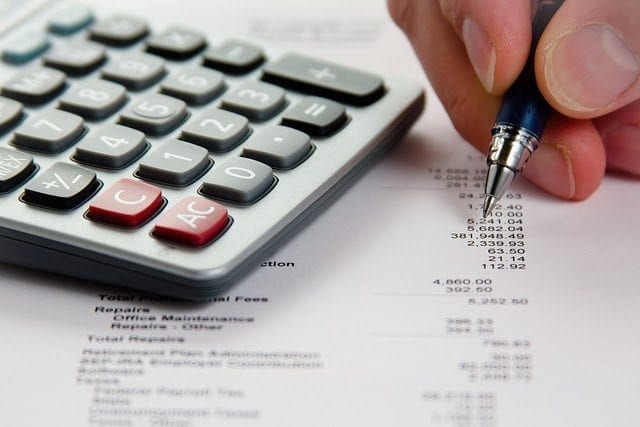The Bankruptcy Process in Pennsylvania
Top Bankruptcy Attorneys and Home Foreclosure Defense Attorneys.
Over 750 ★★★★★ Google Reviews

Contact Our Attorneys Today



EVALUATION
At Sadek Bankruptcy Law Offices, we realize that every situation is different. Our debt relief lawyers will take the time to learn about your situation and your goals. Our objective is to explain your legal options and offer the best debt relief strategy for you in the most compassionate and friendly manner possible. Call 24/7 to schedule your meeting with a lawyer.
AVAILABLE
Our office understands the financial stress our clients endure. Therefore, in addition to reasonable legal fees, we offer a payment plan to all of our valued clients to make quality legal services most affordable.
AND NJ
In addition to our primary law office in Center City, Philadelphia, we also have law offices throughout the Greater Philadelphia, Pennsylvania Area and in New Jersey. Our branch offices have contributed to making us the #1 Bankruptcy Filer and debt relief firm in the Greater Philadelphia area. Our goal is to have a convenient location within 20 minutes of where our clients work or reside.
The Bankruptcy Process in Pennsylvania
Bankruptcy is a legal process that can wipe out your debts, prevent foreclosure, protect you from creditor harassment and debt collectors, and give you other financial benefits.
In this informational bankruptcy guide for Pennsylvania residents, the Philadelphia bankruptcy attorneys of Sadek Bankruptcy Law Offices, LLC explain the Pennsylvania bankruptcy process, including differences between Chapter 7 bankruptcy and Chapter 13 bankruptcy, and requirements for completing bankruptcy procedures in Pennsylvania successfully.
If you think bankruptcy could be right for your situation, or if you have any questions about the process of filing for bankruptcy in Pennsylvania, we encourage you to contact our law offices at (215)-545-0008 for a free bankruptcy consultation.
Our Southeast Pennsylvania bankruptcy law firm is proud to serve residents of Bucks, Delaware, Montgomery, and Philadelphia Counties, including Manayunk, Germantown, Northern Liberties, Levittown, Croydon, Bristol, Chester, Drexel Hill, Ardmore, Norristown, Pottstown, King of Prussia, and beyond.

How Does Bankruptcy Work in PA?

A person who files for bankruptcy is known as a “debtor,” “filer,” or “petitioner.” A person or company to whom the debtor owes money is called a “creditor.” The debtor may be a:
- Single individual
- Married individual, filing jointly with his or her spouse
- Married individual, filing individually
- Business owner
There can be advantages and disadvantages to filing jointly or individually for married couples. If you and your spouse are thinking about declaring bankruptcy separately or together, our attorneys can help you decide which approach would better help you attain your financial goals.
The primary purpose of bankruptcy is to help the debtor reduce, or in some cases completely eliminate, the debts he or she owes various creditors. Some debts need to be paid back in full, while other debts can be repaid for a fraction of what is actually owed. Debts that can be eliminated are called “dischargeable debts” and include:
- Business Debts
- Collection Agency Accounts
- Credit Card Debt
- Medical Bill Debt
- Older Income Tax Debt
- Past-Due Rent
- Past-Due Utility Bills
- Personal Loans
- Repossession Deficiency Balances
- Social Security Overpayments
- Veterans Assistance Loans
Debts that cannot be eliminated are called “non-dischargeable debts” and include:
- Alimony Payments
- Child Support Payments
- Criminal Restitution
- Government Fines and Penalties
- Most Student Loans
- Recent Income Tax Debt
The process your case will follow depends on what type of bankruptcy, or which bankruptcy “chapter,” you choose. While there are rare circumstances where Pennsylvania residents file Chapter 11 bankruptcy, the vast majority of personal bankruptcy cases involve either Chapter 7 bankruptcy or Chapter 13 bankruptcy.
PA Chapter 7 Bankruptcy Procedures
Other names for Chapter 7 bankruptcy include:
- Liquidation
- Ordinary Bankruptcy
- Straight Bankruptcy
The process begins when you file your bankruptcy petition and pay a $335 Chapter 7 filing fee. You will also be required to submit supporting paperwork describing your debts, assets, income, and other financial information.
Keep in mind that failure to provide complete and accurate information can result in dismissal of your case, leaving you stuck with your debts.
As soon as you file, you become protected by the “automatic stay” under federal law. The automatic stay stops (“stays”) debt collections while your case is pending, unless a creditor gains court approval to lift the stay.
Shortly after filing, the bankruptcy court will also assign a Chapter 7 bankruptcy trustee to your case. The trustee bears responsibility for administering the bankruptcy estate. In Chapter 7, the trustee’s role is to liquidate (sell) property and assets. Proceeds from the sale help you repay your debts.
Fortunately, most Chapter 7 debtors can keep much or all of their property. There are two reasons for this:
- If the property has low value, the trustee may abandon it.
- Debtors can protect certain property with bankruptcy exemptions. Pennsylvania debtors may choose between two sets of exemptions: the Pennsylvania bankruptcy exemptions, or the federal bankruptcy exemptions.
Chapter 7 bankruptcy typically takes as little as four to six months to complete. While there are variations from case to case, a general Chapter 7 timeline includes the following steps:
- Before you can file bankruptcy in Pennsylvania, you must (1) meet residency requirements, and (2) undergo mandatory pre-bankruptcy credit counseling through an approved agency.
- You file Chapter 7 bankruptcy.
- You mail requested financial documents to the bankruptcy trustee.
- Approximately one month after filing, the bankruptcy court schedules a meeting of creditors. During this meeting, you will be interviewed by the trustee to ensure all of your information is accurate, complete, and up-to-date.
- Within 60 days of the meeting of creditors, you must undergo mandatory pre-discharge debtor education through an approved provider.
- Approximately 60 to 75 days after the meeting of creditors, the bankruptcy court should discharge your debts if you have followed the process properly.

PA Chapter 13 Bankruptcy Process
Other names for Chapter 13 bankruptcy include:
- Reorganization Bankruptcy
- Wage Earner’s Plan
Like Chapter 7, Chapter 13 begins with the filing of the bankruptcy petition, accompanied by a $310 Chapter 13 filing fee and supporting financial paperwork. Other similarities are that:
- A bankruptcy trustee will be assigned to your case shortly after filing.
- You will immediately gain the protection of the automatic stay, with some exceptions.
In Chapter 13 bankruptcy, nonexempt property and assets are not liquidated. In other words, you get to keep all of your property. However, you must propose, gain court approval for, and commit to a repayment plan, which will last for either three or five years.
Under the repayment plan’s terms, you make monthly or biweekly payments to the Chapter 13 trustee, who then distributes the funds amongst your creditors. Funds are distributed based on the types of claims each creditor has. This includes:
- Secured Claims – These are debts “secured” by collateral, like a vehicle or a piece of property. Examples include auto loans and mortgages. These must be paid in full with interest in order to retain the property.
- Unsecured Priority Claims – These are debts given special priority by federal bankruptcy regulations. They typically must be paid in full. Examples include spousal support, child support, and newer income tax debts.
- General Unsecured Claims – Other debts belong in this category, and include utility bills, medical bills, credit card bills, and personal loans. You may pay less than what you owe on these debts, as long as your creditors receive at least the same amount that they would have received if you filed Chapter 7 instead of Chapter 13.
The process for Chapter 13 follows similar steps, including the meeting of creditors. However, the process is longer and more complicated than Chapter 7.
For example, after the meeting of creditors, you must attend a confirmation hearing for the court to approve your reorganization plan. You must begin making payments to the Chapter 13 trustee within 30 days of filing for bankruptcy, even if the court has not yet approved your plan at that time.
The Pennsylvania bankruptcy court in the eastern part of the state is the United States Bankruptcy Court for the Eastern District of Pennsylvania. It has two courthouses, which are located at the following addresses:
Robert N. C. Nix, Sr. Federal Courthouse
900 Market Street, Suite 400
Philadelphia, PA 19107
The Madison Building
400 Washington Street
Reading, PA 19601

Philadelphia Attorneys Can Help You File Bankruptcy
Bankruptcy is a complicated procedure, but can yield great rewards, including foreclosure prevention, debt reduction, protection from debt collectors, improved ability to build good credit in the future, and invaluable peace of mind that your finances are stable again.
To learn more about filing Chapter 7 bankruptcy in Pennsylvania or filing Chapter 13 bankruptcy in Pennsylvania, contact the Philadelphia bankruptcy attorneys of Sadek Bankruptcy Law Offices, LLC at (215)-545-0008 today for a free and confidential legal consultation.
